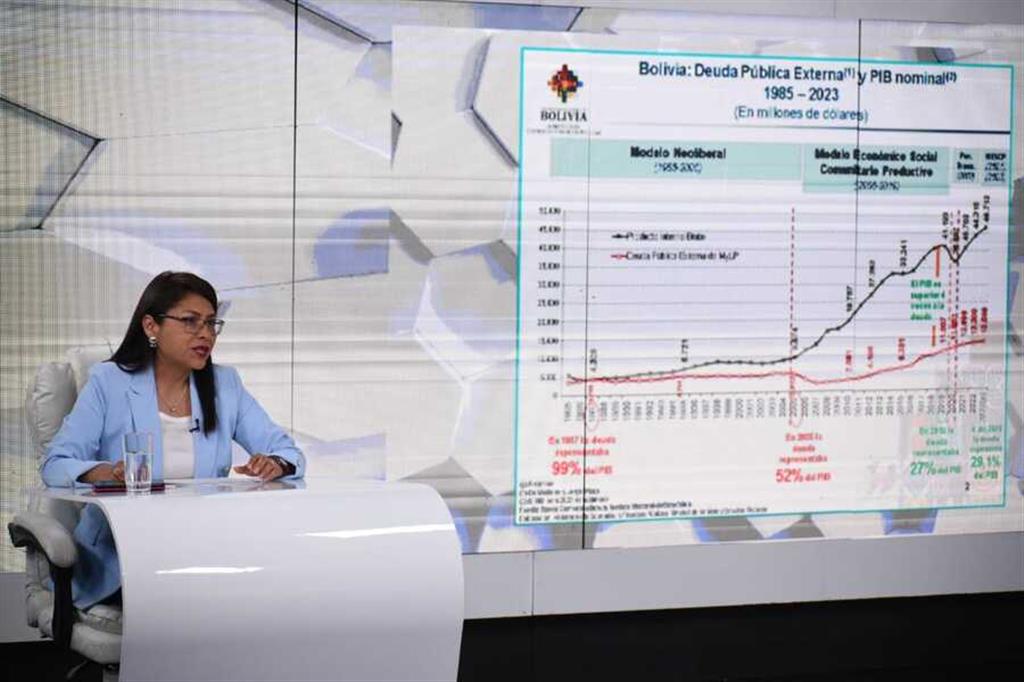Moody’s lowered Bolivia’s rating from Caa1 to Caa3, a category that warns about the risk that the country will not comply with its external debt obligations and will not have foreign currency to pay for its imports.
Juana Jiménez, Vice Minister of the Treasury and Public Credit of Bolivia, criticized that the firm does not value this factor in its proper dimension and focuses its arguments on other risks of a political nature. She assured that “Bolivia has the corresponding currencies to meet its obligations at this moment, its debt-related obligations. Gradually, it will also continue to comply with the obligations that are generated in relation to imports”.
Jiménez stressed that the rating agency’s report does not take into account variables such as the growth of the Gross Domestic Product, one of the lowest inflation in South America and the reduction of unemployment. The functionary confirmed that there is “operational and foreign currency programming for the payment of our obligations, complying with multilateral organizations (…)”, among them the Inter-American Development Bank, the Andean Development Corporation, the World Bank and the Fonplata Development Bank.
The vice minister also listed other bilateral financial institutions from China, France and Germany, as well as international bondholders, and asserted that “we are complying.”
During a speech this Sunday, President Luis Arce assured that the firm’s rating has a political origin, linked to the lack of approval of credits in the Plurinational Legislative Assembly (ALP). “Bolivia has not stopped paying its foreign debt for a single day, we don’t have to, we continue to pay without problems. What is the basis then for the organizations to go down? It is a political issue,” the dignitary said, adding that the agency says that loans are not approved in the ALP and this is the reason for lowering the risk rating.
jrr/llp/jf/jpm










